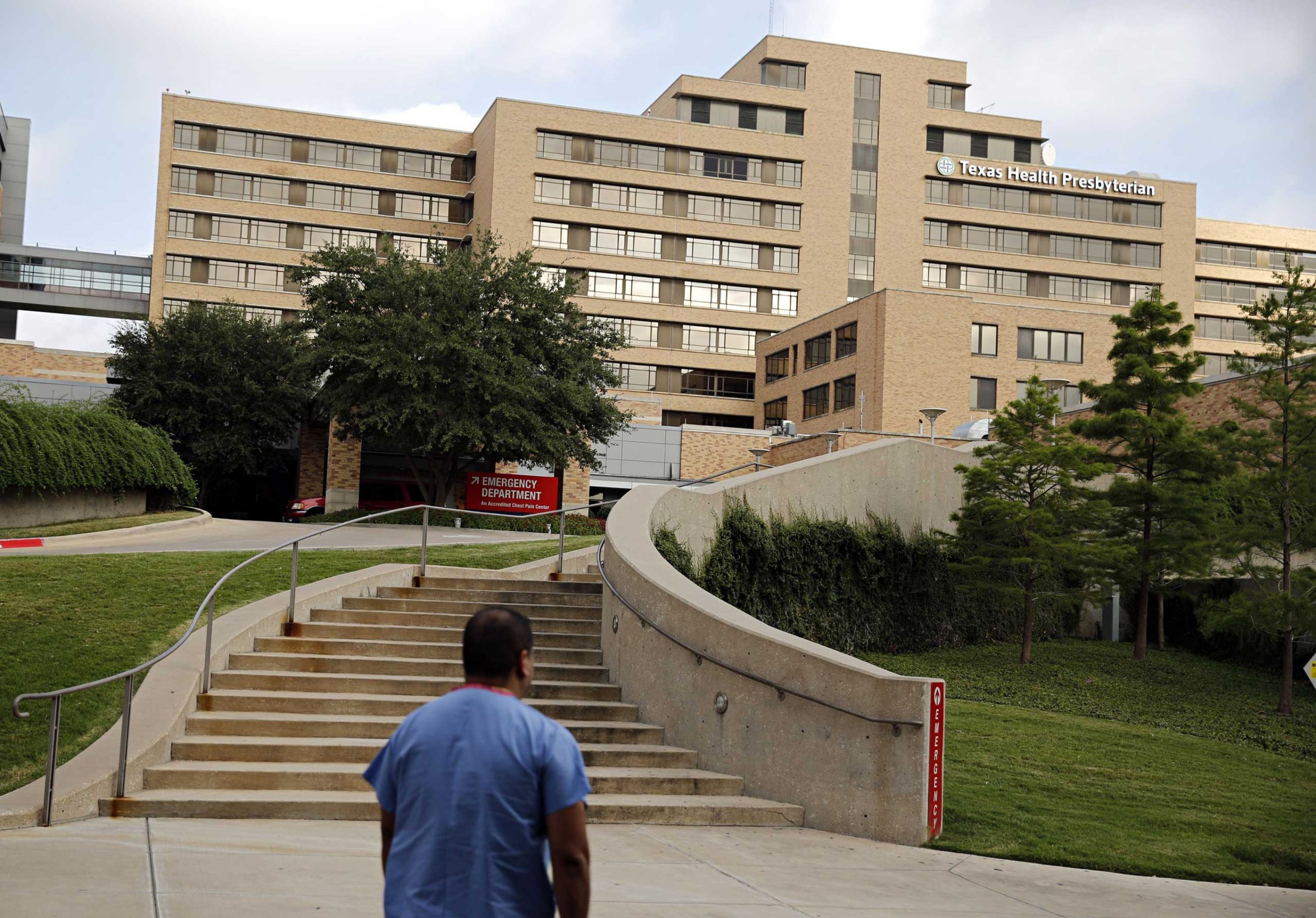
The Dallas hospital treating Thomas Eric Duncan, the first diagnosed case of Ebola in the U.S., suggested Thursday night that a technical flaw contributed to the decision not to admit Duncan on his first visit despite his declared history of travel to West Africa.
Under pressure for its role in potentially exposing scores of Americans to the deadly virus, the hospital said in a statement that a flaw in its electronic health-records system prevented the doctor attending Duncan from seeing that he had recently traveled from Liberia, which was noted by the nurse who screened him.
“Protocols were followed by both the physician and then nurses,” the hospital said, adding that the system, designed to help nurses administer flu vaccines, prevented the note on Duncan’s travel history from automatically appearing for the doctor.
The hospital said it would amend the system to highlight whether patients had traveled to Ebola-stricken regions. “We feel that this change will improve the early identification of patients who may be at risk for communicable diseases, including Ebola,” the statement said.
The statement comes as the hospital faces criticism for its decision not to immediately admit Duncan late on the night of Sept. 25, when he arrived with a 100.1°F fever, complaining of abdominal pains and experiencing decreased urination. Three days later, Duncan returned to the hospital far sicker, and was placed in isolation as a possible Ebola case. He tested positive for the virus on Sept. 30.
The hospital’s decision broadened the pool of people who may have come into contact with the virus. Federal, state and local officials are now assessing about 100 people for possible direct or indirect contact with Ebola. At least four people with direct contact with Duncan have been quarantined in their apartment by order of Texas state officials.
Facing criticism, the hospital in its statement defended its actions, noting that Duncan’s symptoms were “not severe” on his initial visit and “could be associated with many” other afflictions.
The hospital also seemed to be scrambling to cast some blame on Duncan. “When Mr. Duncan was asked if he had been around anyone who had been ill, he said that he had not,” the hospital said. Duncan is thought to have contracted the virus while aiding an Ebola patient in Liberia shortly before embarking on his trip to the U.S. on Sept. 19.
More Must-Reads From TIME
- The 100 Most Influential People of 2024
- The Revolution of Yulia Navalnaya
- 6 Compliments That Land Every Time
- What's the Deal With the Bitcoin Halving?
- If You're Dating Right Now , You're Brave: Column
- The AI That Could Heal a Divided Internet
- Fallout Is a Brilliant Model for the Future of Video Game Adaptations
- Want Weekly Recs on What to Watch, Read, and More? Sign Up for Worth Your Time
Write to Alex Altman / Dallas at alex_altman@timemagazine.com